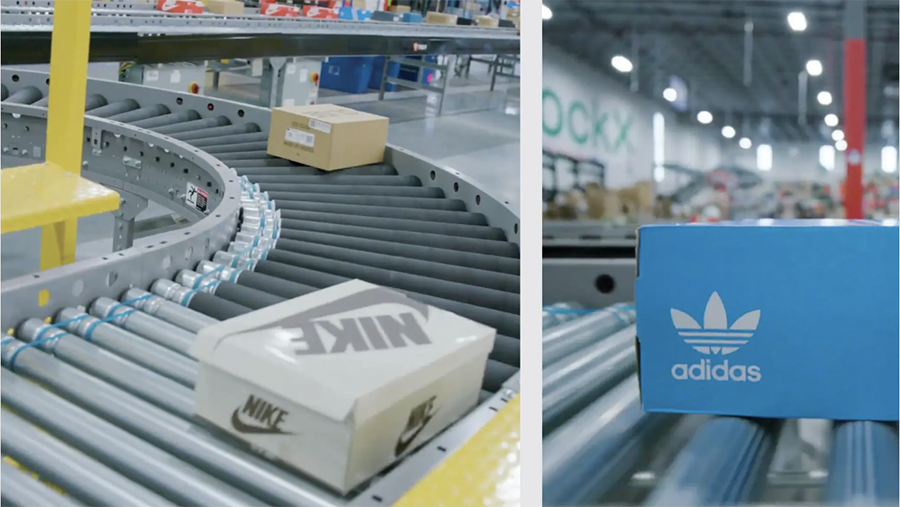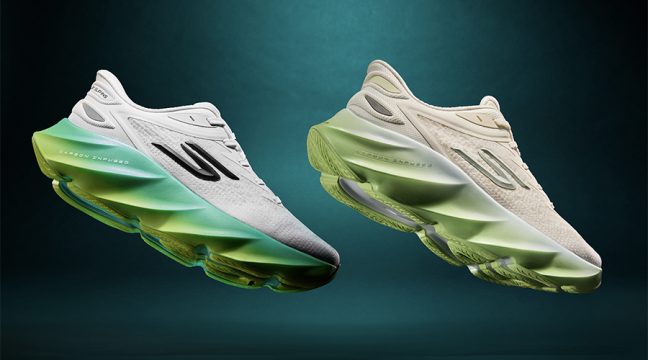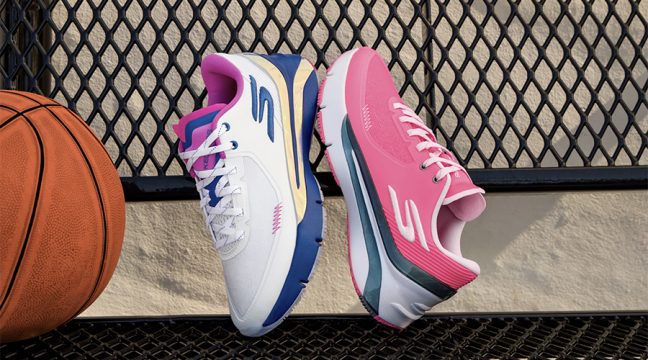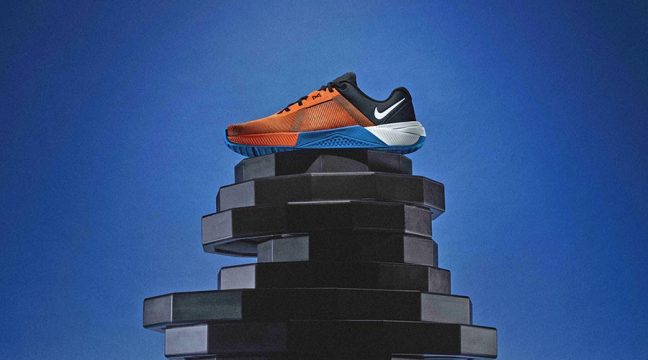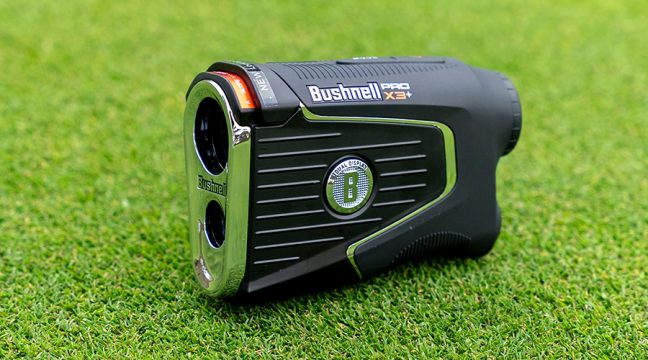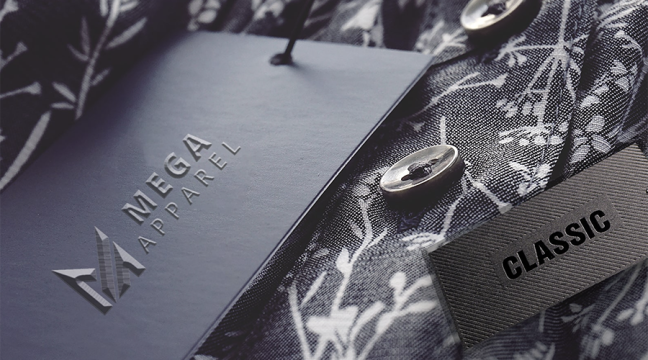Active lifestyle market reseller StockX has rolled out its second annual Brand Protection & Customer Trust Report, offering an in-depth look into the company’s investments and advancements in verification, fraud prevention work, and broader anti-counterfeiting efforts in 2024.
StockX said in its report summary that it continues to implement significant measures to protect customers, having rejected more than 370,000 products — collectively valued at nearly $74 million — in 2024 for not meeting its verification standards. Focusing specifically on sneakers, the company blocked nearly 250,000 pairs from its marketplace in 2024. Of those, over 30,000 pairs were flagged as suspected counterfeits. The gross merchandise value (GMV) of these suspected fake sneakers totaled nearly $10 million, representing a significant potential risk the platform mitigated for its customers.
Beyond product verification, StockX said it also prioritized sell-side enhancements to bolster its defenses against fraudulent actors, rolling out a new seller onboarding policy, introducing new seller limits, and implementing more rigorous transaction monitoring.
“In 2024, StockX blocked more than 500,000 ‘bad’ Asks from being added to the marketplace,” the company said in the summary. “The company had to block far more — more than 800,000 — in 2023. This decline is said to be a direct result of new protections put in place to obstruct bad actors. Additionally, StockX proactively blocked more than 90,000 suspicious account creation attempts, preventing these potential bad actors from ever listing a product or placing a bid on the platform in 2024.”
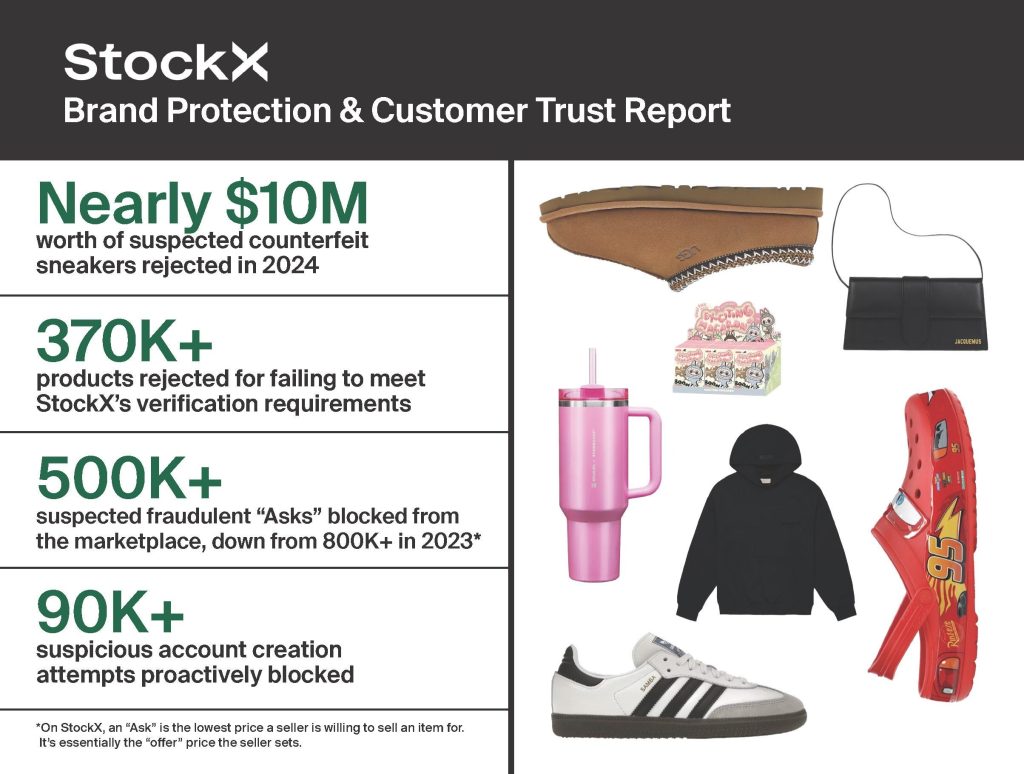
StockX’s second annual Brand Protection & Customer Trust Report offers an in-depth look into the company’s investments and advancements in verification, fraud prevention work, and broader anti-counterfeiting efforts in 2024.
“The findings in this report underscore our ongoing commitment to protecting our community and setting a higher standard for accountability across the resale industry,” said StockX CEO Greg Schwartz. “We’ve made significant investments in our verification processes, rolled out new, stricter requirements for sellers, enhanced our fraud prevention systems, and built valuable partnerships with brands and law enforcement agencies. But as excited as we are to share the wins, we also recognize the work ahead. This report isn’t just a reflection of where we’ve been — it’s a roadmap for how we’ll continue to lead with trust at the center of everything we do.”
Key highlights from StockX’s 2025 Brand Protection & Customer Trust Report include:
Technological Investments in Verification
StockX verification experts leverage a combination of deep product knowledge, market data, tech-powered tools, and third-party solutions to determine whether a product meets the company’s brand standards. In particular, StockX’s increased investment in technology has helped separate its verification process from others in the resale ecosystem.
- Launch of Automated High-Risk Product Routing: In 2024, StockX began leveraging machine learning models to assign a risk score to every order that enters a verification center. These models detect higher-risk products based on seller behavior and specific order attributes. The models also consider historical data like how frequently a specific product has failed StockX’s verification process, with high rates of past failures increasing an order’s risk score. With these scores, StockX can flag high-risk products as soon as they enter the facility and route them to its most experienced team members. This implementation led to the suspension of thousands of sellers in 2024 and helped ensure nearly 15,000 suspected inauthentic orders never made it to customers.
- Expanded Use of Embedded Technologies: As more brands have incorporated embedded technologies, such as RFID (Radio Frequency Identification) and NFC (Near Field Communication), into their manufacturing processes, StockX has integrated this technology into its verification protocol. If a StockX team member scans an RFID tag and the system deems it suspicious (which can happen if the code is incomplete or incorrect), that product is flagged as having a higher risk of being counterfeit. While this RFID check is not the singular deciding factor in the verification process, it does offer a valuable data point. Since rolling out an RFID system in 2022, StockX has scanned nearly 10 million RFID tags.
- CT Scanning Rollout: CT scanning technology, which involves taking a series of X-ray images and combining them into a 3D reconstruction of a product, was integrated into StockX’s verification protocol in early 2024. This enables the analysis of internal structures typically not visible to the naked eye. Manufacturers of fraudulent products often focus on the exterior of the counterfeit products they’re producing, but overlook or struggle to match the internal structure of the authentic product. Today, nearly all electronics orders undergo CT scanning. Additionally, StockX leverages CT scanning for high-risk products and select new releases.
Brand and Law Enforcement Partnerships
Though the report doesn’t identify brand partners by name, StockX breaks down how it is working with leading companies across the sneaker, apparel, and footwear industries. The platform has helped both established and emerging brands bolster their brand protection efforts by providing valuable data on market performance, counterfeit trends, and bad actor activity, along with best practices for manufacturing and supply chain security. These partnerships are essential to enhancing defenses against counterfeiters across the secondary marketplace. The report also details StockX’s information-sharing relationships with law enforcement agencies globally. Currently, StockX is supporting several ongoing investigations. In 2024, StockX intelligence led to large-scale seizures of counterfeit products, the identification and return of stolen products, and the disruption of other illegal activities.
Latest Counterfeit Trends
Offering a deep dive into the latest trends in counterfeit products, the report reveals which counterfeit products StockX verification experts saw most frequently in 2024. Unsurprisingly, a review of the data shows that products with high rates of counterfeiting also tend to rank among the best-selling products overall on StockX. Fear of God is a top target in the apparel space, which is predictable given it has been the No. 1 best-selling brand in the category since it knocked Supreme out of the top spot in 2022. Looking at collectibles, the top two items are Labubu products from Pop Mart. Pop Mart is the No. 1 top-traded collectibles brand on StockX, a position it has held since October 2024, thanks to the viral success of the brand’s Labubu character. In the shoes category, classic styles from Ugg and the Crocs Classic Clog Lightning McQueen — the best-selling Crocs release in StockX history — top the list. Yeezy products dominate the slides list, and Supreme holds multiple spots in the accessories category, which is consistent with historical data. For sneakers, two different adidas silhouettes – the adidas Campus 00s Core Black and the adidas Samba OG Cloud White Core Black take the No. 1 and No. 2 spots. The Jordan 1 Retro Low OG SP Travis Scott Canary (Women’s) comes in at No. 3, followed by the New Balance 2002R Protection Pack Rain Cloud at No. 4 and the Maison Mihara Yasuhiro Hank OG Sole Canvas Low Black at No. 5.
The suspected counterfeit products StockX saw most frequently in 2024
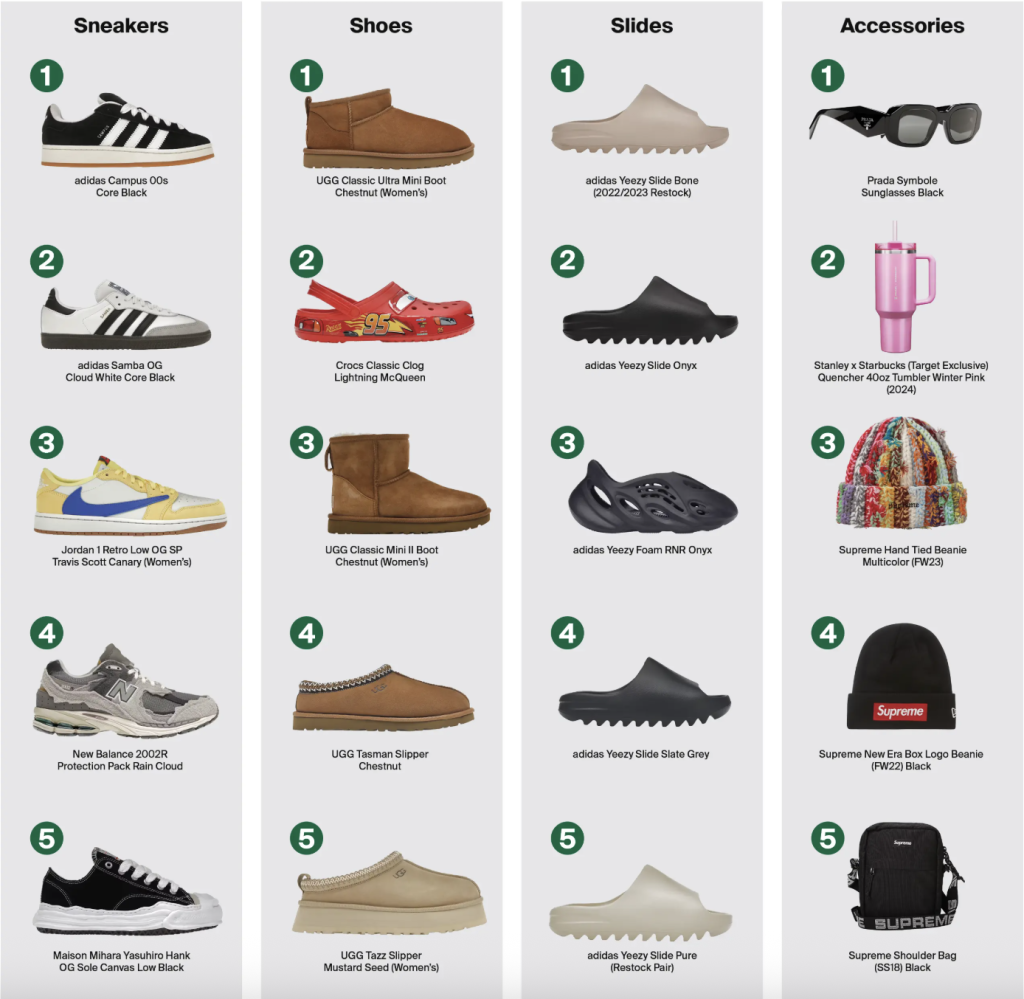 These findings highlight the growing interest among consumers in a wider variety of footwear brands and an increased demand for affordable, general release sneakers. This marks a significant shift; in previous years, the most counterfeited products were typically exclusive, rare, and expensive releases. For example, the Jordan 1 Retro High Off-White Chicago, with an average resale price of $3,766, was the most counterfeited sneaker on StockX in 2020. Similarly, the Jordan 1 Retro High OG SP Fragment x Travis Scott, which has an average resale price of $2,232, ranked as the second most counterfeited sneaker in 2022. Today, however, sneakers like a general release adidas Samba are ranking high on the list. This highlights how far-reaching the counterfeiting issue has become and underscores the value a platform like StockX brings by verifying products or vetting sellers.
These findings highlight the growing interest among consumers in a wider variety of footwear brands and an increased demand for affordable, general release sneakers. This marks a significant shift; in previous years, the most counterfeited products were typically exclusive, rare, and expensive releases. For example, the Jordan 1 Retro High Off-White Chicago, with an average resale price of $3,766, was the most counterfeited sneaker on StockX in 2020. Similarly, the Jordan 1 Retro High OG SP Fragment x Travis Scott, which has an average resale price of $2,232, ranked as the second most counterfeited sneaker in 2022. Today, however, sneakers like a general release adidas Samba are ranking high on the list. This highlights how far-reaching the counterfeiting issue has become and underscores the value a platform like StockX brings by verifying products or vetting sellers.
Looking to the future, StockX is committed to continuing its efforts to combat counterfeiters and fight bad actors more broadly by investing in advanced technology, strengthening law enforcement partnerships, and deepening its relationships with brands.
Images, data and graphics courtesy StockX

